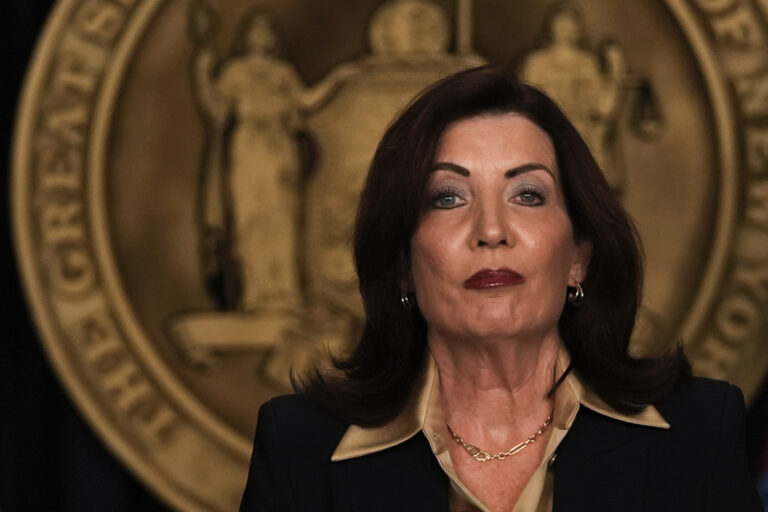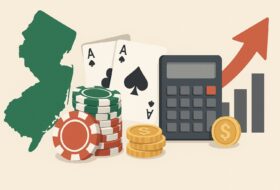
New York is just a signature away from shutting down sweepstakes casinos.
Following Attorney General Letitia James’s footsteps on the cease-and-desist letters sent to 26 operators earlier this month, lawmakers didn’t waste any time in following suit.
They hustled Senate Bill 5935 through the Assembly on June 17, and since the Senate already passed it on June 11, it’s now officially sitting on Governor Kathy Hochul’s desk.
If she signs it, the Empire State will become the latest state to prohibit online sweepstakes casinos, joining states like Montana and Connecticut. Of course, the companies running these sweepstakes sites are desperately hoping Governor Hochul steps in with a veto.
On the sideline, crackdown on online sweepstakes gambling is really gaining steam across the U.S. In fact, just yesterday, the Mississippi Gaming Commission officially joined the fight, announcing it had issued cease-and-desist letters to multiple companies operating illegally within its borders.
SB5935 comes with heavy fines and criminal charges
New York isn’t just banning online sweepstakes; they’re putting teeth into it. Senate Bill 5935, which passed the Assembly with a 141-0 vote this past Tuesday, is all about amending the state’s racing and wagering laws to flat-out prohibit online sweepstakes games and block any revenue from illegal sources.
The state isn’t playing around with enforcement either. The New York State Gaming Commission and the Attorney General are getting some serious muscle to hit violators where it hurts.
Fines could be anywhere from $10,000 to $100,000 for each offense, and offending companies might even lose any other gaming licenses they hold in the state.
What’s more, individuals or firms who invest in platforms that let people convert digital currency into real cash could even face criminal charges.
The new bill isn’t just going after the operators; it throws a wide net, targeting pretty much anyone who helps these sites function. We’re talking about financial institutions, payment processors, companies providing location data, content creators, platform hosts, and even advertisers.
Essentially, New York aims to dismantle the entire network that allows these online games to operate and profit within its borders.
Why does New York say “no?”
New York’s bottom line is that they see these sweepstakes sites as operating totally off the books.
Supporters of the bill believe these platforms completely bypass all the usual safeguards like consumer protection, responsible gaming guidelines, and checks against money laundering. Since they don’t get licensed or pay taxes like legitimate casinos do, the state views them as a real drain on its regulated gaming industry, which contributes huge tax dollars and plays by strict rules.
Sen. Joseph Addabbo (D-Queens), the sponsor of SB5935, said:
“Online real money ‘sweepstakes casinos’ have recently become widely available in New York. These products evade consumer protection, responsible gaming, and anti-money laundering requirements to which gambling in New York is otherwise subject. These products and operations are untaxed and unregulated. They present unfair competition to the state’s legal, highly regulated, and economically important casinos.”
SGLA slams bill as misguided
As usual, there is always a party that will oppose these biddings, and the Social Gaming Leadership Alliance (SGLA) has been a consistent one.
They’re arguing that this new law will just cut millions of Americans, including many residents, off from the popular, no-cost online games they genuinely enjoy.
Jeff Duncan, executive director of SGLA, said last month:
“By advancing legislation that was drafted based on a fundamental misunderstanding of our industry and aggressively promoted by stakeholders with a competitive interest in shutting down these platforms, New York residents could lose access to popular, free-to-play online games enjoyed by millions. Of particular concern, the discretionary powers handed to the Gaming Commission under this bill could restrict the use of a popular marketing tool, hurting businesses and the New York economy in ways lawmakers did not intend.”





